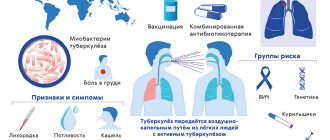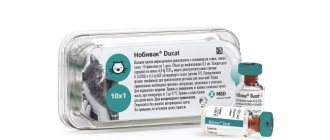For many of us, childhood memories remain the most vivid impressions in life. One of these memories I have is hiking in the forest during my summer holidays. Finding mushrooms and berries was a real adventure for me and my friends. Taught by our elders, we put on rubber boots, trousers, jackets, scarves and hoods, carefully covering everything except our faces and hands. It cannot be said that we liked this kind of preparation, but this issue was not subject to discussion. And as we got a little older, we ourselves began to understand that preventing tick bites is a really important thing.
Tick bites themselves are not dangerous to humans. The danger arises if the tick is infected. They are carriers of tick-borne encephalitis, Lyme disease, typhus and others.
Tick-borne encephalitis is caused by a virus. This disease affects the central nervous system. Usually the disease occurs with pronounced symptoms, but a chronic course is also possible. Often tick-borne encephalitis leads to death or disability of the patient.
Why is this vaccination needed?
Vaccination against tick-borne encephalitis helps protect the body from a dangerous virus.
Vaccination is also necessary to prevent the dangerous consequences of the disease that accompany a person throughout his entire life.
Important! Almost every tick is a carrier of the virus. This means that a bite from any of them can cause irreparable harm to health, and infection with encephalitis is possible even in Moscow and the Moscow region. Meanwhile, you can encounter insects not only in the forest. Ticks also live in cities. They can get on a person’s body even in the park during a walk, when traveling out of town, to the country house or on a picnic.
Myths about vaccination against tick-borne encephalitis
Myth No. 1.
Vaccination can make you sick.
This is wrong. The vaccine does not contain a live virus and cannot cause infection.
Myth No. 2.
After vaccination, you can ignore tick bites.
This is also incorrect. In addition to tick-borne encephalitis, ticks are carriers of several other diseases, so if you are bitten by a tick, you should still consult a doctor.
Myth No. 3.
Vaccine prophylaxis is carried out only for children and only in public medical institutions.
Not certainly in that way. You can get vaccinated either under the compulsory medical insurance policy or for a fee in any clinic that has the appropriate license. This type of prevention is available to both children and adults.
Myth No. 4.
If you do not go into the forest, the tick will not bite.
Those who go into the forested area once a year are not immune from tick bites. Even a single contact with a tick can be fatal.
Scheme
Immunization according to indications is carried out in clinics at the place of residence. You can also get vaccinated in a paid clinic. Vaccination against tick-borne encephalitis for children is carried out in educational institutions.
To develop stable immunity, the vaccine is administered twice. The first vaccination is usually given in the fall.
This allows you to prepare for the traditional spring-summer epidemic.
Repeated immunization is carried out at the beginning of winter
(about a month later). If the vaccination date is missed, it is allowed to postpone it by 3 months. This scheme ensures the development of lasting protection against a dangerous disease.
Revaccination is carried out after 9-12 months
(not earlier). The exact deadline is announced by a specialist.
Important! In emergency cases, the drug is administered earlier. The second vaccination against tick-borne encephalitis for children planning a trip to a health camp outside the city, for example, can be given as early as 2 weeks after the first.
There are other schemes. The three-dose regimen involves administering the first vaccination, administering the second dose of the drug after 2 weeks and the third - 3 months after the second.
When to vaccinate?
In order not to take risks, you need to determine the period when to vaccinate against tick-borne encephalitis. All manipulations are done before the start of the tick season. The timing of vaccination against tick-borne encephalitis depends on the type of vaccination.
For emergency vaccination, the procedure is carried out a month before the risk of being bitten by a tick (when using an imported vaccine) or 1.5 months (for domestic drugs).
To develop stable immunity, routine vaccination begins when the active activity of ticks ends. Then the drug is administered twice more, observing a certain frequency.
Features of the event
The encephalitis vaccine is given subcutaneously under the shoulder blade or in the deltoid muscle.
Important! The site of administration of the drug is determined by the manufacturer and depends on the composition. Recently, preference has been given to intramuscular formulations.
Before vaccination, you should definitely consult your doctor. He will examine the patient and determine whether he is healthy and whether he should be injected with the drug now or whether it is better to postpone the procedure. ARVI and other pathological conditions must be excluded. If necessary, the patient undergoes examination. As a rule, a general blood test is given. It allows you to exclude the presence of inflammatory and other negative processes in the body.
Who, when and how to get vaccinated?
It is recommended to get vaccinated for people who live, work or plan to travel on vacation to areas where tick-borne encephalitis is endemic. You need to take care of this in advance. The first ticks can appear as early as when the snow begins to melt, and they can bite you as early as April. The peak activity of these insects occurs in May; the danger of a bite remains until the end of June. Therefore, people who are going to relax in nature or actively work in the country during the May holidays are in greatest danger.
IMPORTANT: Vaccination alone will not protect you from encephalitis. To achieve immunity, at least two vaccinations must be given at least a month apart. It is best to think about this in January-March, especially since there are no restrictions on the time of year, you can do this in both winter and autumn. The main thing is that two weeks pass between vaccination and going outdoors. It is during this period that your body will develop immunity.
Before vaccination, you need to be examined by a therapist who will be able to notice contraindications in time (we’ll talk about them at the end of the article). The vaccination itself is carried out in three stages:
- First vaccination - at any time.
- The second vaccination is after a month or three, depending on the specific vaccine. Immunity from it will last for a year.
- The third - after 9-12 months. It allows the body to develop stable immunity for a longer period - up to three years.
You will then need to get one shot every three years to maintain your immunity.
If you miss one scheduled booster shot after three years, you will simply need to get another shot. But if you miss two, you’ll have to do the whole course again. Therefore, you should carefully remember the deadlines and not violate them.
If the deadlines were missed and you did not get vaccinated in advance, you can get an emergency vaccination - with a break of 14 days between the first and second vaccinations. In any case, this will be much more effective than administering the vaccine after a tick bite. The recommended timing of administration of individual vaccines may also differ, so it is better in any case to first consult with your doctor and strictly follow the timing prescribed by him.
Reaction and possible complications
All modern drugs (subject to proper storage and high quality) are well tolerated.
Possible reactions to vaccines are divided
on the:
- Local: slight redness of the skin and local increase in temperature
- General: slight increase in body temperature, weakness, slight malaise, headache, aching joints
All reactions resemble the onset of a cold. They are harmless and do not require medical advice.
As a rule, such reactions are caused by an individual “response” of the body or by the administration of a drug that has expired or violated storage conditions.
Tick-borne encephalitis: what to do if you forget your vaccination date? 4
If you have a vaccination passport, then these questions disappear, but what to do if the vaccination document is lost? How can you find out whether you still have immunity from encephalitis and what happens if you get vaccinated, violating the vaccination schedule?
“I lost my vaccination passport!”
Our expert is the head of the Infection Surveillance Service, infectologist at the Riga Eastern Clinical University Hospital, Māris Liepins .
– When should you be vaccinated against tick-borne encephalitis?
– The best time for the very first vaccination is winter, when ticks are sleeping and you don’t have to be afraid of them. Ticks wake up at a temperature of +5 degrees, which means that by this time it is advisable to complete the entire vaccination regimen against tick-borne encephalitis. Immunity to a tick bite is developed only 10 days after the second vaccination, that is, 45 days after the first. The third vaccination must be done one year after the first.
If you have not had time to get vaccinated according to this scheme, then it is worth getting vaccinated according to the accelerated scheme, according to which three vaccinations are given within one month. But even in this case, immunity does not turn on immediately, but 25–30 days after the first vaccination. Whatever vaccination regimen you choose, after a while you will need to be vaccinated against encephalitis again. Depending on the drug administered, the break can be three or five years. The dates of vaccinations given, the drug administered and the time of the next vaccination are noted in a special vaccination passport.
– What to do if a person has lost his vaccination passport and does not know either the name of the drug that was administered to him or the date of the next vaccination?
– If a person was vaccinated in the vaccination room of the Latvian Infectious Diseases Hospital, then he can come there and ask to find information about the vaccinations received. I don’t know whether other medical institutions store this information. But if a person does not have the opportunity to find out when he was last vaccinated against tick-borne encephalitis and when he needs to be vaccinated again, then there is only one way out: donate blood for the presence of antibodies to encephalitis. This test will help you find out whether you still have immunity to the disease.
– Who should give directions for this analysis and where is it done?
- No direction needed. The test can be taken at any vaccination office, its cost is from 10 to 15 euros. You must pay for the analysis out of your own pocket.
Reading the analysis
– What exactly can the results of the analysis tell us?
– The test will tell you how many antibodies (if any) are present in the blood. The doctor will look at these numbers and decide whether the patient needs the vaccine or can wait. However, the doctor will not be able to determine from this analysis when the previous vaccination was given and how many more vaccinations the patient needs to receive to protect against tick-borne encephalitis.
– Is it possible to determine the approximate date of the next vaccination against tick-borne encephalitis by the number of antibodies in the blood?
- Unfortunately this is not possible.
– How quickly can you find out the results of the analysis?
- About a week. A person donates blood in a vaccination office, a week later he comes and finds out whether he needs to be vaccinated “against ticks” right now or not.
– I know that if a person has forgotten the date of the next vaccination, some doctors first vaccinate him and only then do an analysis for the presence of antibodies in the blood. How correct is this technique?
– In my opinion, it’s wrong. If there are antibodies, then there is no need to get vaccinated. If there are no antibodies, there is a point in vaccination. But perhaps the doctor sent you for analysis after vaccination for completely different purposes, and not to find out whether the vaccination was necessary.
What if you don’t do the analysis?
– What will happen to health if a person, without testing for antibodies, goes through the entire course of vaccination again? Provided that he has already had one, two or even three vaccinations, but forgot about it...
“I assure you that nothing bad will happen to his health.” Moreover: if you have forgotten the last time you were vaccinated and exactly how many times you have already been vaccinated, then the best thing to do is not just get one vaccination, but start the entire vaccination course again, according to the schedule prescribed by your doctor.
– What happens if a person does not remember when he received the previous vaccination and therefore decided not to get vaccinated at all?
– If he is bitten by an encephalitis tick, and the person’s blood does not contain the required amount of antibodies, then the person can become infected with tick-borne encephalitis. The same can happen if a person forgot the date of the next vaccination and as a result went, say, for the third vaccination later than scheduled.
– Is it possible to vaccinate infants, pregnant women, breastfeeding women and the elderly against tick-borne encephalitis?
- Certainly! The vaccination will not harm them, as it does not contain a live virus.
Important questions
Of course, a person must take care of his own health and not lose his vaccination passport. But maybe family doctors have a duty to remind their patients about the need for a new vaccination? The head of the press service of the National Health Service, Evija Stalberga, answers the question:
– In accordance with the contract between the National Health Service and the family doctor for the provision of publicly paid health care services, the family doctor's team is obliged to monitor the vaccination status of registered patients. In other words, the doctor or his nurse is obliged to remind the patient that the time for vaccination against tick-borne encephalitis is approaching.
– As far as I know, if a person does not remember the last time he was vaccinated against ticks, then he needs to take a blood test for the presence of antibodies. Is there a fee for this analysis?
– This analysis is paid only with a referral from an infectologist, neurologist, pediatric infectologist or pediatric neurologist. But the analysis is not done just like that (when a person has forgotten the date of vaccination), but in order to check a person’s immune status or determine the presence of specific antibodies in the patient’s blood serum. This is done to make sure that there is a sufficient amount of antibodies to tick-borne encephalitis in the blood, or that the amount of antibodies is not enough and another vaccination is needed.
– Who gets discounts on vaccination against tick-borne encephalitis?
– The state pays for vaccinations for children from one year to 18 years old, if the child’s place of residence is in the area where tick-borne encephalitis is widespread. In addition, throughout Latvia, orphans and children without parental care receive vaccination against tick-borne encephalitis free of charge.
– Where should a person go if he finds a tick on himself?
– You can remove the tick yourself using special tweezers, which are sold in pharmacies. In addition, the tick can be removed in medical institutions. The state pays for the tick removal procedure for all residents of Latvia (including children), and in case of tick-borne encephalitis, the state will pay for the necessary treatment.
– Do I have to pay to have a tick tested in a laboratory to find out if it is infected with encephalitis or Lyme disease?
– This inspection is not paid for from the state budget. Therefore, if a person wants to check a removed tick, then they must pay for the check in accordance with the price tag of the institution that conducts the check.
Types of vaccines
Vaccination against tick-borne encephalitis is given using a number of drugs produced in Russia, Austria and Germany. All products are required to undergo numerous inspections and certification. For injections, formulations are used that contain a live, but many times weakened virus. It cannot provoke the development of the disease, but allows the body to develop a strong immunity to it.
The following types of drugs are popular:
- EnceVir.
This product is produced in Russia and is well tolerated by adults. It is not recommended for children, as the drug causes a number of side effects. - EnceVir Neo.
This product is also produced in Russia and is safer for children. It is administered even to children under 3 years of age. There were no significant side effects recorded - Encepur.
Produced in Germany. Children can be vaccinated against tick-borne encephalitis as early as one year of age. The vaccine is well tolerated and very rarely causes negative consequences. - Mite-E-Vac.
This drug is manufactured in Russia. It can be administered to babies as early as one year of age. The composition is well tolerated and does not cause significant side effects. - FSME-Immun.
This drug is produced in Austria in two forms: for children from 12 months and for adults. It is recommended (in exceptional cases, with a high risk of infection) even for infants under one year old. Important! The doctor and parents should closely monitor the condition of the baby after administration of the drug.
All formulations are as effective as possible. Even if infected, the disease will be mild and will not cause complications.
Important! Foreign drugs are more expensive, but also more effective and safe.
Vaccinations for travelers: where to start and what to pay attention to before your trip?
Sometimes it seems that it is very difficult to understand vaccination on your own and it is better to immediately contact a private clinic, which will carry out all the vaccinations and you will not delve into all the intricacies of this process. However, if you move step by step, you can easily figure out vaccination yourself, and significantly save time and money.
You will still have to visit a doctor, since without his referral, which is issued if there are no contraindications to a particular vaccination, no one will give you the vaccinations you need to travel abroad. A referral for their implementation is issued by a therapist or pediatrician. In difficult cases, it is better to discuss questions about vaccinations with such highly specialized specialists as an immunologist or an infectious disease specialist. They will help you figure out what vaccinations are needed in a particular situation and draw up a vaccination plan.
With a rational approach to vaccination before traveling abroad, you can get by with just 1-2 visits to the doctor:
- First, you need to clarify whether all vaccinations from the national calendar of preventive vaccinations have been completed. You can find out details about your vaccination history with the help of your local doctor at the clinic at your place of residence.
- All missing mandatory vaccinations included in the national calendar of preventive vaccinations can be carried out free of charge in the clinic at your place of residence, and additional ones (for example, against yellow fever, Japanese encephalitis, etc.) can be carried out for a fee in a private medical center.
- If you do not need to save on medical services, then you can get all the vaccinations that are missing and necessary in your opinion in a private clinic for a fee. However, before visiting her, you will still have to raise the history of your vaccination according to the national calendar of preventive vaccinations at the clinic at your place of residence.
WHO recommends starting vaccinations for travel abroad 4 to 8 weeks in advance. All preventive vaccinations according to the national calendar are performed free of charge. There is also a vaccination calendar for epidemic indications. One of these indications may be traveling to another country.
Advantages of vaccination at MEDSI
- Use of high-quality and effective drugs.
All formulations are certified, properly stored and supplied only by trusted manufacturers - Vaccination safety.
Vaccination against encephalitis is given only after examination by a therapist or pediatrician. If necessary, the patient can be consulted by allergists-immunologists who see both adults and children. For patients with concomitant pathology, additional examinations, laboratory and functional diagnostics are possible - Experience of specialists.
Our professionals know how to administer medications correctly - Opportunities for appointments at any
time convenient for the patient - Vaccination of adults and children from one year onwards.
Vaccination against tick-borne encephalitis can be given according to indications or at the personal request of the patient - Mandatory health monitoring
before administering the drug. This reduces all risks of hazardous health consequences.
If you want to protect yourself from a dangerous disease, call us at +7 (495) 7-800-500. The specialist will tell you the cost of the service and make an appointment for you.
Who can be vaccinated against tick-borne encephalitis?
First of all, people whose work involves being in the forest need to be vaccinated: mushroom pickers, hunters, students of geological, geographical and biological faculties.
People living in endemic areas also need to be vaccinated. Endemic zones are regions where the risk of infection is higher. The list of subjects is presented on the Rospotrebnadzor website, the list is updated annually.
When talking about risk groups, we single out only those categories in which the risk is maximum.










